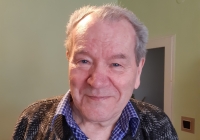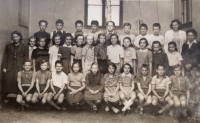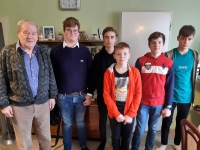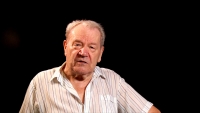Everything was planned, and yet there was nothing
Download image
Karel Vacek was born on September 6, 1940 in Brno. He spent his whole youth in the Žabovřesky district. Even though he was only a small boy, he vividly remembers the end of the Second World War and the liberation of Brno, which took place on April 26, 1945. He also went to primary school in Žabovřesky and was directly affected by the education reform in 1953 - instead of four other classes, which he was to attend he did only three classes at Sirotkov Elementary School. Subsequently, he graduated from the age of eleven and completed his technical education and then completed his technical education in mechanical engineering at Sokolská in Brno. After that, he joined the then world-famous Brno Zbrojovka, where he held various positions, until he finally became the head of the department of work plans and wages, and he remained working there until his retirement. In August 1968, he and his wife and colleagues returned from vacation in Bulgaria. He remembers that fateful night on August 21 mainly because he was awakened by the massive noise of planes landing at Slatina Airport near his residence at the time. He personally took part in a demonstration in November 1989. In 2001 he retired. He has two children and lived in Brno at the time of the filming.



